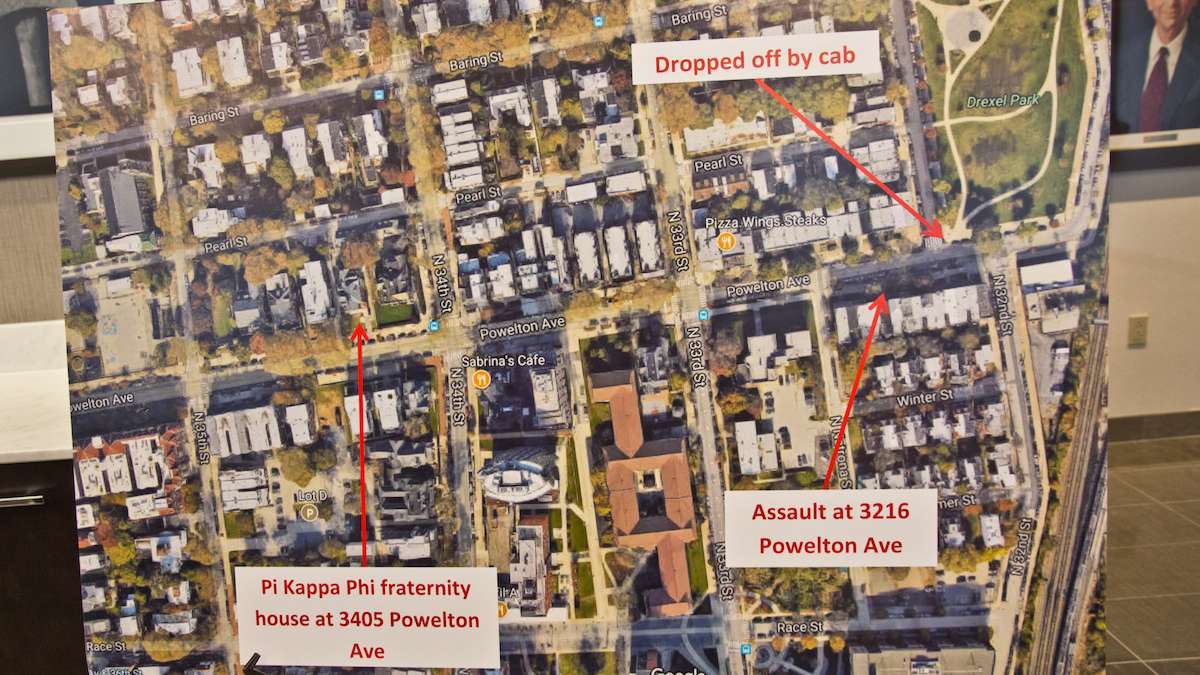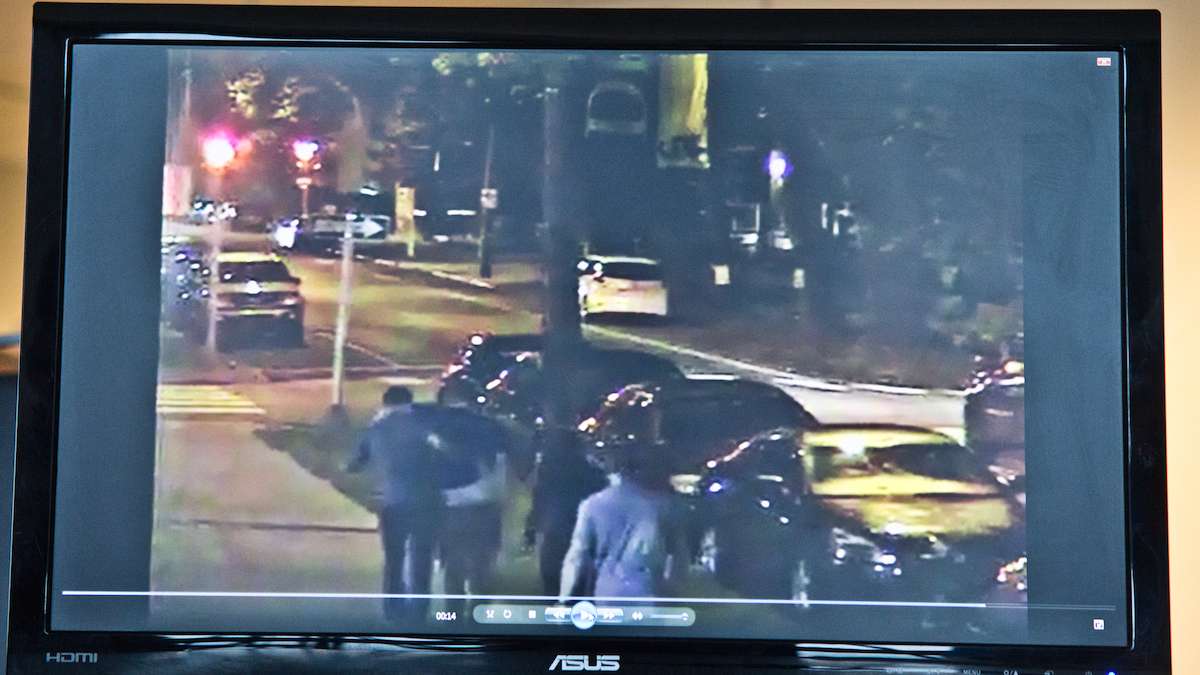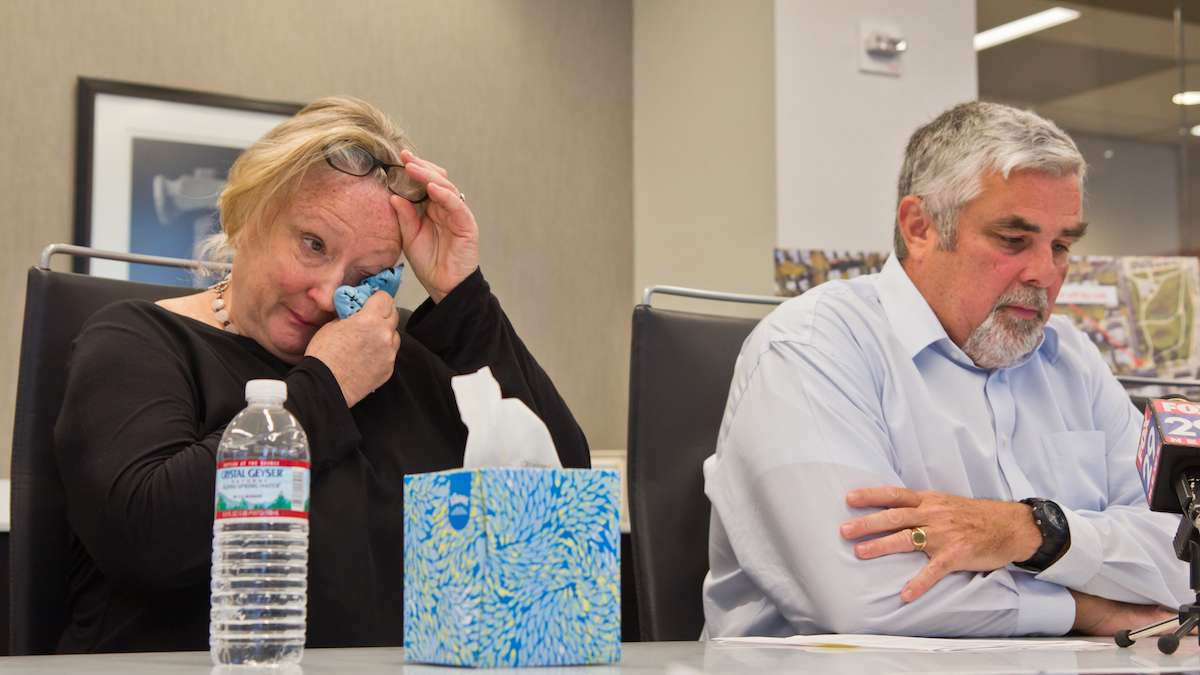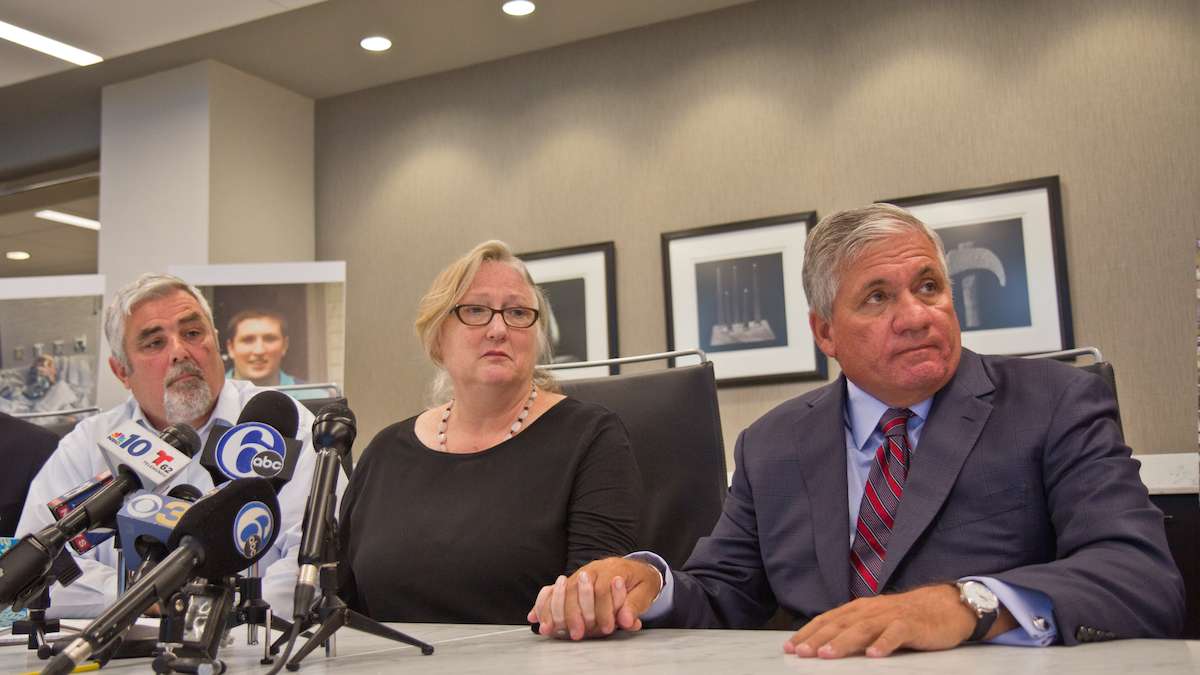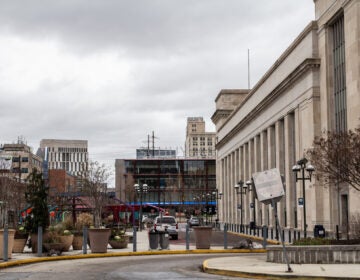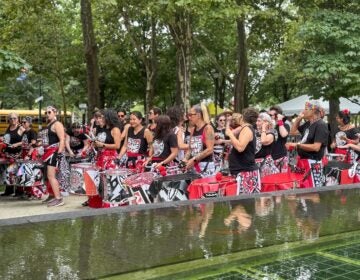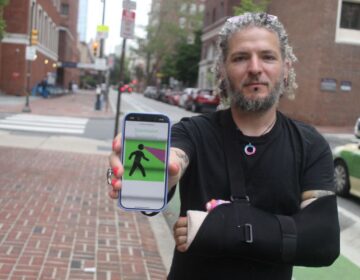Parents of Drexel student injured in fight sue fraternities, brothers who didn’t summon help
When Ian McGibbon didn’t come home after a night out with his fraternity brothers, his parents and sister went looking for him.
“He always comes home and kisses me goodnight,” Elizabeth McGibbon said of her son. “It was just not his custom to not come home, or let us know. He didn’t particularly like spending the night at school. He was a homebody.”
Around noon that fateful Sept. 12, 2015, day, the Narberth family found Ian exactly where he said he’d be: With his brothers at Pi Kappa Phi, a fraternity just off Drexel University’s campus on Powelton Avenue near 34th.
But the discovery was far from a relief: Ian lay on a couch unconscious in a pool of blood and vomit. His fraternity brothers stood around him, debating what to do with him.
Elizabeth McGibbon, a nurse, knew immediately her son was horribly injured. The family called 9-1-1, and paramedics got him to a hospital within minutes.
But it had been 10 hours since Ian fell and bashed his head onto the concrete during a street fight with members of a different fraternity. By the time doctors saw him, his brain had swelled so much they had to remove the top of his skull to relieve the pressure and save his life, his parents said.
Thursday, nearly two years after that night, his parents sued two fraternities, five fraternity brothers and the Old City bar that served Ian alcohol, accusing all of negligence for their roles in an incident that led a judge in January to declare Ian “totally incapacitated.”
The details of the case evoke another Greek system tragedy that has gotten headlines around the globe: The Feb. 4 death of Penn State student Timothy Piazza, who died after he fell down the stairs during a night of heavy drinking, and whose fraternity brothers ignored his worsening medical condition for hours before calling for help.
“How many? How many more? How many of our children are going to be catastrophically injured or killed because the fraternities they rely upon failed them, failed in their essential mission of brotherhood?” attorney Robert Mongeluzzi said during a news conference Thursday announcing the lawsuit. “How many more college students are going to be left abandoned unconscious on a couch while their brain swells and their brothers in a fraternity do not call 9-1-1? When will it end? And how will it stop? And how will the fraternity system change itself to prevent this from ever happening again? Enough is enough.”
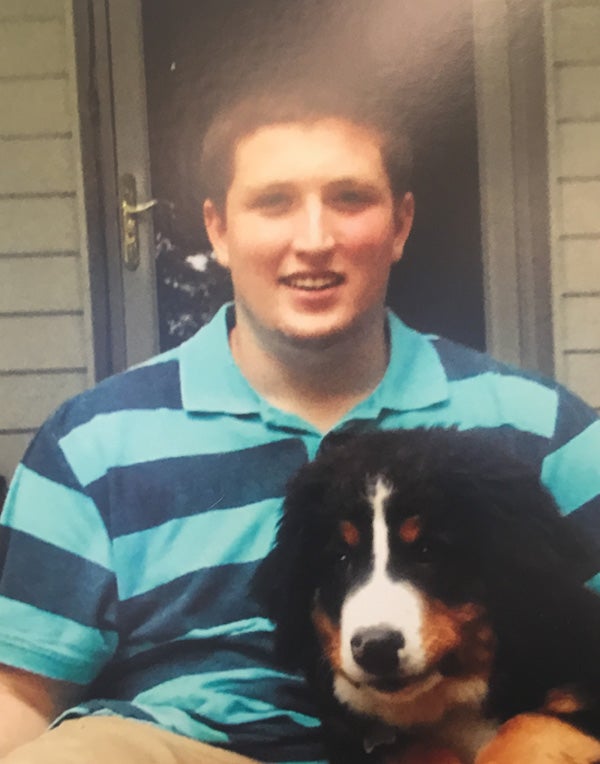 Ian McGibbon before his injuries (Provided)
Ian McGibbon before his injuries (Provided)
The night Ian was injured, he and several of his fraternity brothers went to Cavanaugh’s River Deck in Old City, according to the lawsuit. The bar was having an “all-you-can-drink” special that night, and bartenders kept serving Ian drinks, even though he was visibly intoxicated, the lawsuit states.
“The Pennsylvania liquor code specifically prohibits that kind of party,” said attorney Adam Pantano, who also represents the family.
Ian and his friends left Cavanaugh’s between 1 to 2 a.m., and caught a cab back to University City, with plans to grab some cheesesteaks before heading back to Pi Kappa Phi, Mongeluzzi said.
But just a few blocks from Pi Kappa Phi, Ian and his friends got into an argument with two Delta Sigma Phi members, who were sitting on their porch. What sparked the fight remains disputed, but it escalated to blows, with Delta Sigma Phi brother Franco Ferraina allegedly delivering the punch that dropped Ian, according to an incident report by the Drexel University Public Safety department, which investigated but did not bring criminal charges.
Ian’s two fraternity brothers, Anthony Ferro and Nicholas Paoletti, then carried Ian four blocks back to Pi Kappa Phi, delivering him to the fraternity’s “risk manager,” Zachary Young, according to the lawsuit.
Young, also a fraternity brother, allegedly put Ian on a couch in his room and “watched over” him until morning, the lawsuit states. No one called 9-1-1 or otherwise got Ian help until his family arrived at noon.
Ferro, Paoletti, Young, Ferraina and Matthew Lamorgese, another Delta Sigma Phi member allegedly involved in the street fight, all are named as defendants in the McGibbons’ lawsuit.
Elizabeth and Roderick McGibbon said they’re suing, in part, to educate college students everywhere about the importance of immediately getting help for a vulnerable student in need.
“If 9-1-1 had been called, then we wouldn’t be sitting here right now,” Roderick McGibbon said. “Something needs to be done. It’s very simple to pick up your phone. It takes 2 seconds to dial 9-1-1. We’ve had to live through the consequences of 9-1-1 not being called.”
Ken Hutchings, a Cavanaugh’s owner, said he hasn’t seen the lawsuit yet and so can’t comment. Pi Kappa Phi spokesman Todd Shelton said he couldn’t comment on active litigation. Delta Sigma Phi didn’t return a request for comment.
In a statement issued Thursday afternoon, a Drexel spokeswoman said student safety “is of paramount concern to the university,” citing the school’s DrexelAlert system and a “See-Something-Say-Something” awareness campaign, which encourages bystander intervention.
The school also forgives any wrongdoing by those reporting dangerous situations or students needing medical attention, she added.
“The ‘Responsible Dragon Protocol’ provides complete amnesty from disciplinary action for students who report to the proper authorities for the intention of seeking medical or safety assistance for anyone in need of emergency care.”
As for the Greek system, the statement continued: “Throughout the university’s history, fraternity and sorority life has been an important part of the campus community. Along with the many other student organizations on campus, fraternities and sororities are part of the fabric of the student experience. In partnership with the Interfraternity Council, Panhellenic Council and Multicultural Greek Council, the Office of Fraternity and Sorority Life provides training around safety and healthy behaviors as it relates to events and activities.”
That’s little comfort to Ian’s family.
Ian, now 23, has undergone four brain surgeries since the night he was injured and could face more, his parents said. After one bone graft failed, his doctors inserted a Kevlar patch into his skull, but he’s currently dealing with fluid collecting in that area, his mother said.
He still can’t use his left arm and walks with a brace and a cane. He tires easily, has undergone personality changes, forgets basic things like closing the freezer door, and struggles with everyday tasks like zipping his pants and shampooing his hair, his parents said.
He had been pursuing a business degree, with plans for a marketing career, his parents said. The Monday after his injury, he was set to start a co-op job in marketing for a lacrosse-equipment company.
“He was supposed to have graduated from college recently, and he should be out getting his career started, and instead, he’s got mom and dad helping him to put his clothes on and tie his shoes,” his father Roderick McGibbon said.
Mongeluzzi added: “This is the message: Brother in trouble, 9-1-1 on the double. It takes a second, one second, to call 9-1-1, and help is on its way. And that’s the message that this family wants to send to every fraternity.”
Had the McGibbons not gone hunting for Ian, Mongeluzzi added, the family believes he would have died, as Timothy Piazza did when his fraternity friends ignored his desperate need for help.
Piazza was 19 when he died after enduring a night of hazing and heavy drinking during a pledge party at Beta Theta Pi on Penn State University’s campus. Surveillance video from inside that frat showed an intoxicated Piazza plummeting down the stairs, a fraternity brother punching him and throwing a shoe at him as he later lay unconscious, and frat members dawdling for hours before calling 9-1-1 to get him help. Eighteen people have been arrested and face trial in his death.
While the Piazza case still dominates headlines, several Philadelphia fraternities have landed in big trouble due to underage booze parties.
In May, Drexel suspended Tau Kappa Epsilon for five years, saying it disregarded the school’s alcohol policy. The frat already had been under investigation after three rapes were reported there in just three weeks this spring.
In 2015, a University of Pennsylvania graduate sued Penn’s Phi Kappa Psi fraternity, claiming he got drunk and passed out after a rush party in January 2013 and awoke to a fraternity brother raping him. He was 19 years old at the time.
And in 2012, a judge ordered Penn’s Phi Sigma Kappa fraternity and a beer distributor to pay the family of Matthew Crozier, 20, a $3.4 million settlement after Crozier, a John Carroll University student attending a New Year’s Eve party at Phi Sigma Kappa, got drunk and fell 30 feet over a stairway railing to his death.
“There is no doubt that in connection with fraternities, alcohol plays an overwhelming role in altercations on campus, sexual assault on campus, suicides on campus,” Mongeluzzi said. “Alcohol plays a powerful, powerful role on campus, and it is something that obviously that needs national attention.”
Editor’s note: An earlier edition of this story erroneously noted which arm Ian is unable to use. It is his left arm.
WHYY is your source for fact-based, in-depth journalism and information. As a nonprofit organization, we rely on financial support from readers like you. Please give today.



